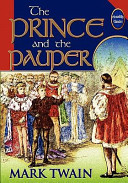
The Prince (Unabridged and Illustrated) PDF
Preview The Prince (Unabridged and Illustrated)
As a young Florentine envoy to the courts of France and the Italian principalities, Niccolò Machiavelli (1469–1527) was able to observe firsthand the lives of people strongly united under one powerful ruler.
In his most famous work, THE PRINCE (Il Principe), Machiavelli described the ideal prince and encouraged the people of Italy to imagine what it might be like if such a person led a unified Italy. Written in 1513 and published posthumously in 1532, THE PRINCE has been interpreted both as a genuine handbook for potential rulers and as a satirical portrait of certain prevailing styles of leadership of the time. Instead of advocating a sense of moral obligation to one's constituents, Machiavelli believed that it is far better for a leader to be feared than liked. He believed that the ends justify the means, and deceit, ruthlessness, and greed are acceptable in the interest of maintaining power. Though THE PRINCE may have influenced Hitler and Mussolini, the Machiavellian principles outlined in it have earned the work a place on many, if not most, lists of required reading for government and political science courses.
Cover Page is of wrong title.
